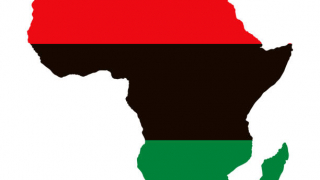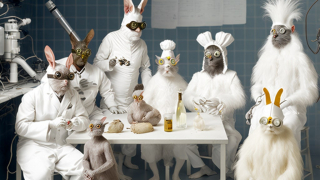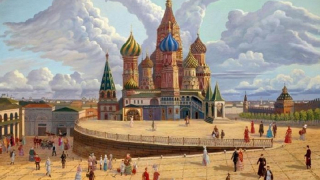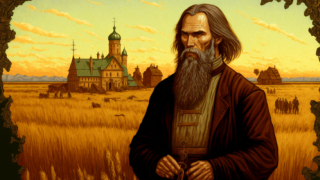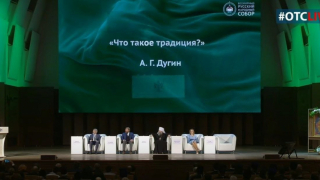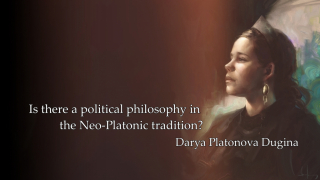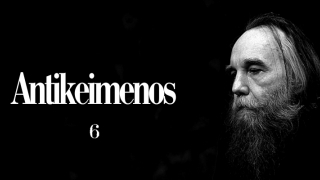Tradition
Death: phenomenology of the great fear
The great fear of human beings is death, a passage of state that has troubled all ages without provoking the terror of our times. The fear of nothingness, of eternal darkness, of the loss of affections and known things is characteristic of the time of dissolution, where death is experienced as the end of everything.
Eurasianism and Pan-Africanism: commonality of challenges and civilisational responses
Eurasian integration is one of Russia's top geopolitical priorities, while African integration is a priority for African countries. Both concepts were formed within their respective ideological currents: Eurasianism and Pan-Africanism. Despite the outward differences between Eurasianists and Pan-Africanists, there are serious structural similarities between these ideologies, which can be summarised in Arnold Toynbee's 'challenge-response' scheme. In essence, these are problems of similar civilisations, of non-Western civilisations confronting the problems of Westernisation, modernisation, historical memory and the project of a future rooted in tradition.
A sociology of the phase transition to postmodernism
Postmodernism is the paradigm towards which the transition from the previous paradigm, the modern, is taking place. The transition is taking place before our eyes, so today's society (at least western society, but also planetary society as far as western influence is concerned) is a society in transition. Not only is Russian society transitive in a broad sense, but also the social matrix that defines the life of humanity to this or that degree is changing its qualitative nature today.
Russian Historiosophy as an Ethical Justification of Being
Looking at its basic principles, our Russian philosophy is historiosophy. It is multidimensional. I think that the moral dimension is the most important one, which doesn't always get the attention it deserves. It has to be said that morality in the context of the Russian ethical tradition does not mean moralism, moralising, or showing off. Ethical questioning is very often confused with moralizing and preaching. So, the ethical is often overshadowed by the moral.
Associations and Reflections around Tradition and Future Shock
What makes technogenic civilization and the era of Modernity and Postmodernity so attractive to the ordinary person, to the overwhelming majority? Why do they assume such to be the pinnacle reached by mankind, and drawing on the “indubitable” ideas of progress and evolution, why do they draw out its prospects to even greater, happy heights, in contrast to the point of view expressed in this book, Tradition and Future Shock: Visions of a Future that Isn’t Ours, according to which these heights are but nightmarish abysses and infernal darkness?
The ABC of traditional values: Tradition
The First Russian TV channel Tsargrad launched a new TV project "The ABC of Traditional Values". A series of expert talks by three Russian thinkers on the foundations of Russian existence and the Russian future. Konstantin Malofeev, Alexander Dugin and Archpriest Andrei Tkachev analyse the Foundations of State Policy for the Preservation and Strengthening of Traditional Spiritual and Moral Values, approved by Vladimir Putin. The first, introductory section deals with Tradition itself.
Alexander Dugin's speech at the First Siberian Forum of the World Russian People's Council: "What is tradition"?
Alexander Dugin: What is tradition? Law 809, which has been talked about a lot today, is a turning point. We are generally living in a new era. This new epoch in Russia began on February 24 after the start of a special military operation, which entailed enormous transformations in the positioning of our country in the global context. The law "On Approval of the Principles of State Policy for the Preservation and Strengthening of Traditional Russian Spiritual and Moral Values" is a point of principle, the announcement of a new ideology of Russia.
Is there a political philosophy in the Neo-Platonic tradition?
Friedrich Nietzsche, in his lectures on Greek philosophy, called Plato a radical revolutionary. Plato, in Nietzsche's interpretation, is the one who surpasses the classical Greek notion of the ideal citizen: Plato's philosopher becomes above religiosity, directly contemplating the idea of the Good, unlike the other two properties (war and artisans).
Antikeimenos [6]
After this methodological digression, let us return to the problem posed at the beginning: does this generalised figure of the 'Antichrist', which we have traced in various religious, morphological and even sociological contexts, have a common ontological denotation? Does a 'generalised Antichrist' exist?



